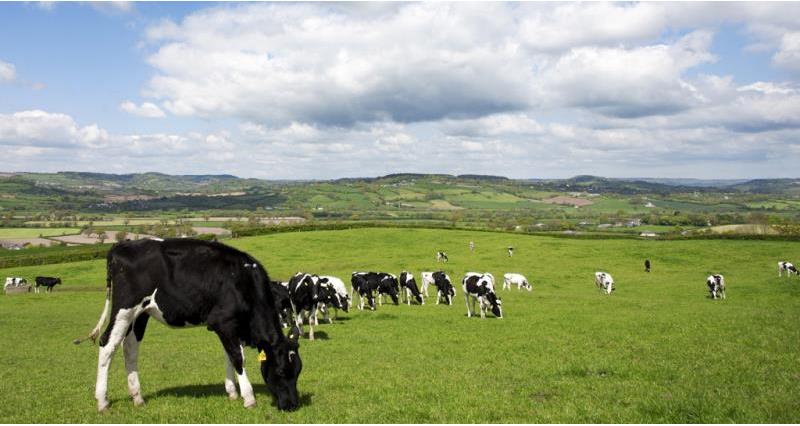She writes:
The volume of dairy products being sold by Co-op is growing and was up 5% this August compared to last. With that in mind, it was positive to hear more about Co-op sourcing policies. In terms of dairy, Co-op own-label cheddar, yoghurt, butter and cream is all 100% British.
Their milk comes from the Co-op Dairy Group (CDG) which is made up nearly 200 farmers from England, Scotland and Wales. Ian Prentice, the Co-op Dairy Group chairman spoke about the special relationship the group has with Co-op, helped by the structure of the CDG, which has a committee made up of representatives from each region as well as a young farmer representative.
The committee meets with Co-op quarterly and gives the farmers an opportunity to feed in their views. Communication runs the other way as well, and the CDG runs 15 smaller producer groups which meet three times a year and provide expert guidance, while giving farmers the opportunity to share ideas and best practice.
It was also interesting to hear about the Co-op Integrated Calf Scheme which launched in September last year and had had 2,243 calves through it to-date. Some 56% of Co-op dairy farms participate in the scheme which aims to integrate the dairy and beef supply chain. At the NFU we recently ran a dairy bull calves survey to monitor the impact that changes to processor spec might be having on farm. We plan to bring you the results shortly, as well as looking at schemes such as Co-ops, which appear to be working well for the farmers involved.
Antibiotics are on everyone’s agenda and the Co-op runs an antibiotic scheme – Average Daily Dose - with its dairy group which monitors antibiotic use, through which they pay for two vet visits each year. One of the questions that came in from the audience was about antibiotic free branding. The Co-op response was that they did not need to go down the branding route. The consumer may find this confusing and, as a responsible retailer, they said they would continue to work in the background with the farming industry on antibiotic use. They emphasised that antibiotics are given responsibly on farms for animal welfare reasons.
It was good to see a retailer openly recognise this responsible use, which is already happening on our dairy farms.
The guest speaker at the conference was Chris Boardman MBE, a British former racing cyclist who is now policy director at British Cycling. Chris spoke about working with high performance teams and constantly striving to get better – this included the importance of taking everyone on the journey. When asked about their thoughts on the state of farming in 40 years’ time, Co-op commercial director Michael Fletcher said he hoped there would be more transparency in the supply chain. As an aim the NFU clearly supports that journey.
